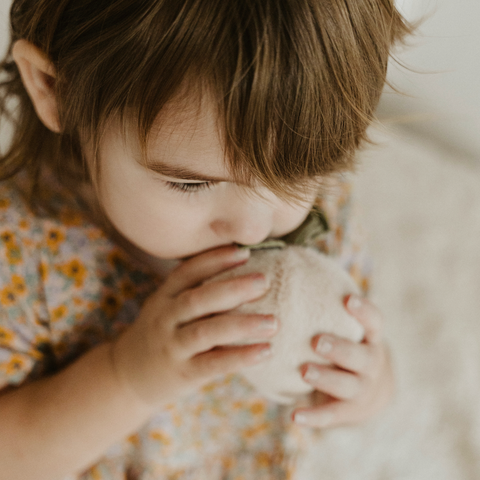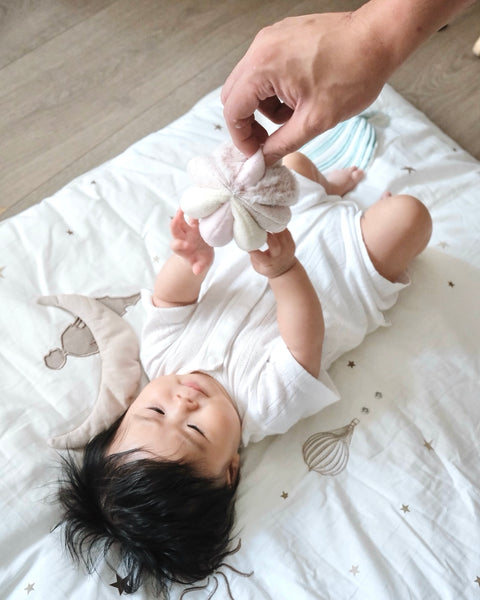Waldorf education, also known as Steiner education, is a child-centered approach to learning that emphasizes creativity, imagination, and holistic development. Like Montessori education, Waldorf education can be applied from birth. In this blog post, we will discuss the five main features of Waldorf education for young babies from 0-12 months of age and the types of toys that are recommended.
1. Respect for the child's natural development
Waldorf education recognizes the unique developmental stages that children go through and respects the natural process of growth and development. This means that young babies are allowed to progress at their own pace and are not rushed or pushed to meet arbitrary milestones.
2. Emphasis on rhythm and routine
Waldorf education places a strong emphasis on rhythm and routine, which can be especially important for young babies. Establishing a consistent daily routine can help babies feel secure and develop a sense of trust in their environment.
3. A nurturing environment
Waldorf education emphasizes creating a nurturing environment for young babies, one that is warm, cozy, and inviting. This can include soft blankets, natural materials, and gentle lighting.
4. Focus on sensory experiences
Waldorf education recognizes the importance of sensory experiences for young babies and encourages the use of natural materials and simple toys that promote exploration and discovery. Examples include wooden toys, soft fabrics, and natural objects such as pine cones and seashells.
5. Respect for the child's imagination and creativity
Waldorf education recognizes the importance of imagination and creativity in a child's development, even from a very young age. Toys that encourage imaginative play, such as dolls or pretend play sets, are recommended for young babies.
When it comes to selecting toys for young babies in a Waldorf environment, there are several key principles to keep in mind. First, consider the sensory experiences the toy provides. Does it have a variety of textures, colors, and shapes? Secondly, think about the toy's potential for encouraging imaginative play and creativity.
In conclusion, Waldorf education for young babies from 0-12 months of age emphasizes respect for the child's natural development, rhythm and routine, a nurturing environment, sensory experiences, and imagination and creativity. By creating a warm and inviting environment and selecting appropriate toys, parents and educators can help young babies develop important cognitive, physical, and social skills. By following these principles, parents and educators can help young babies develop a strong foundation for lifelong learning and growth.







